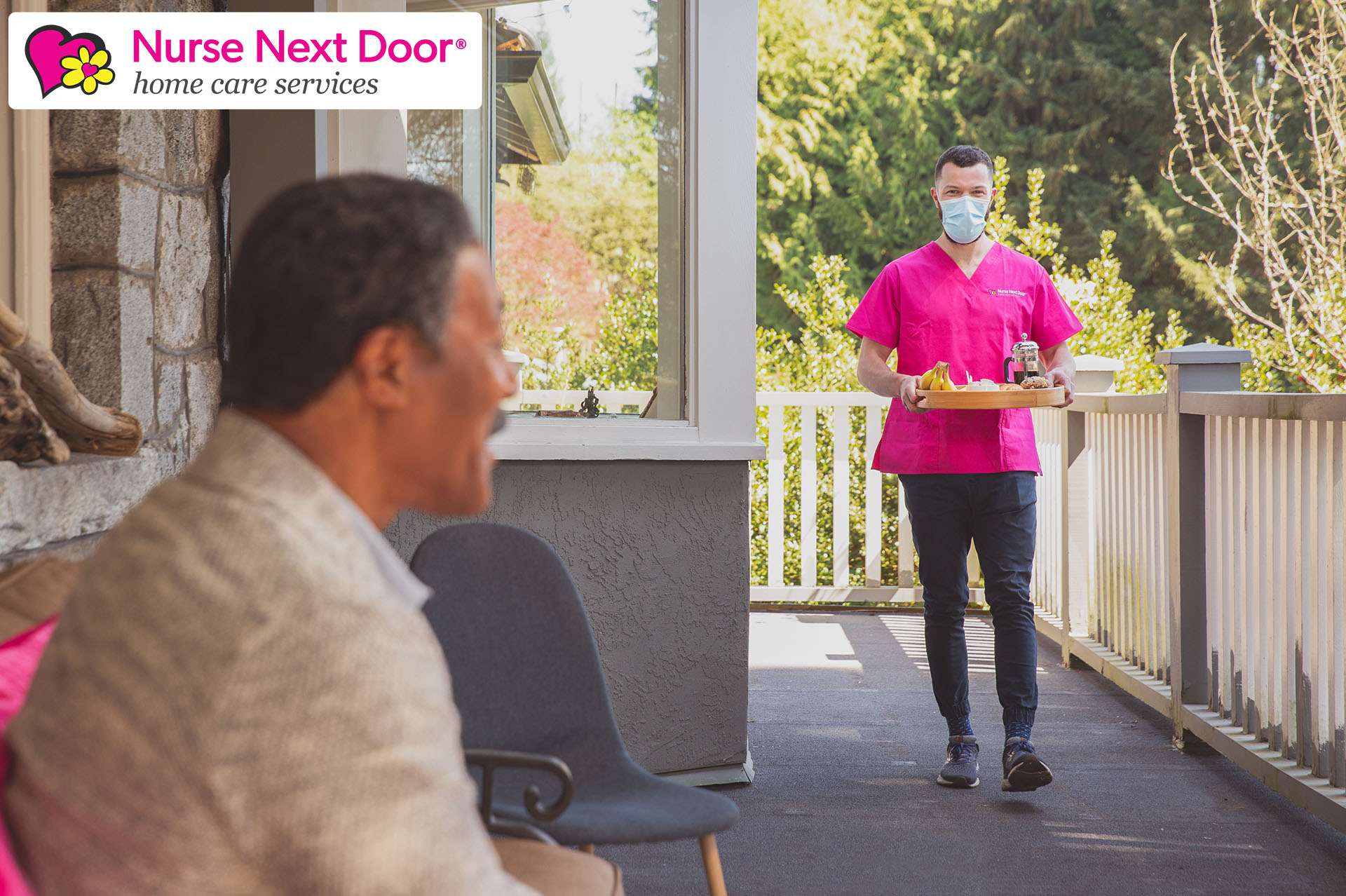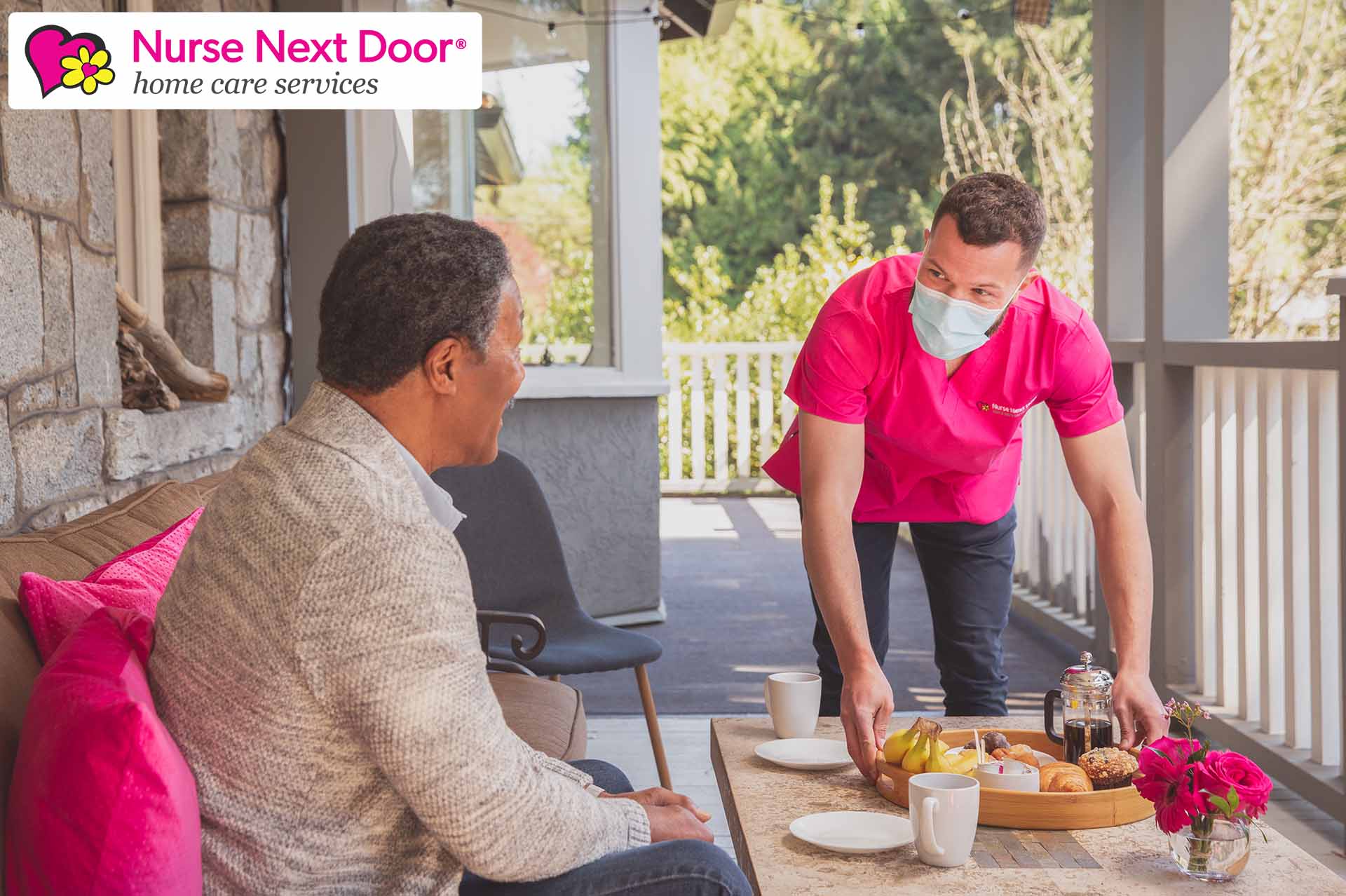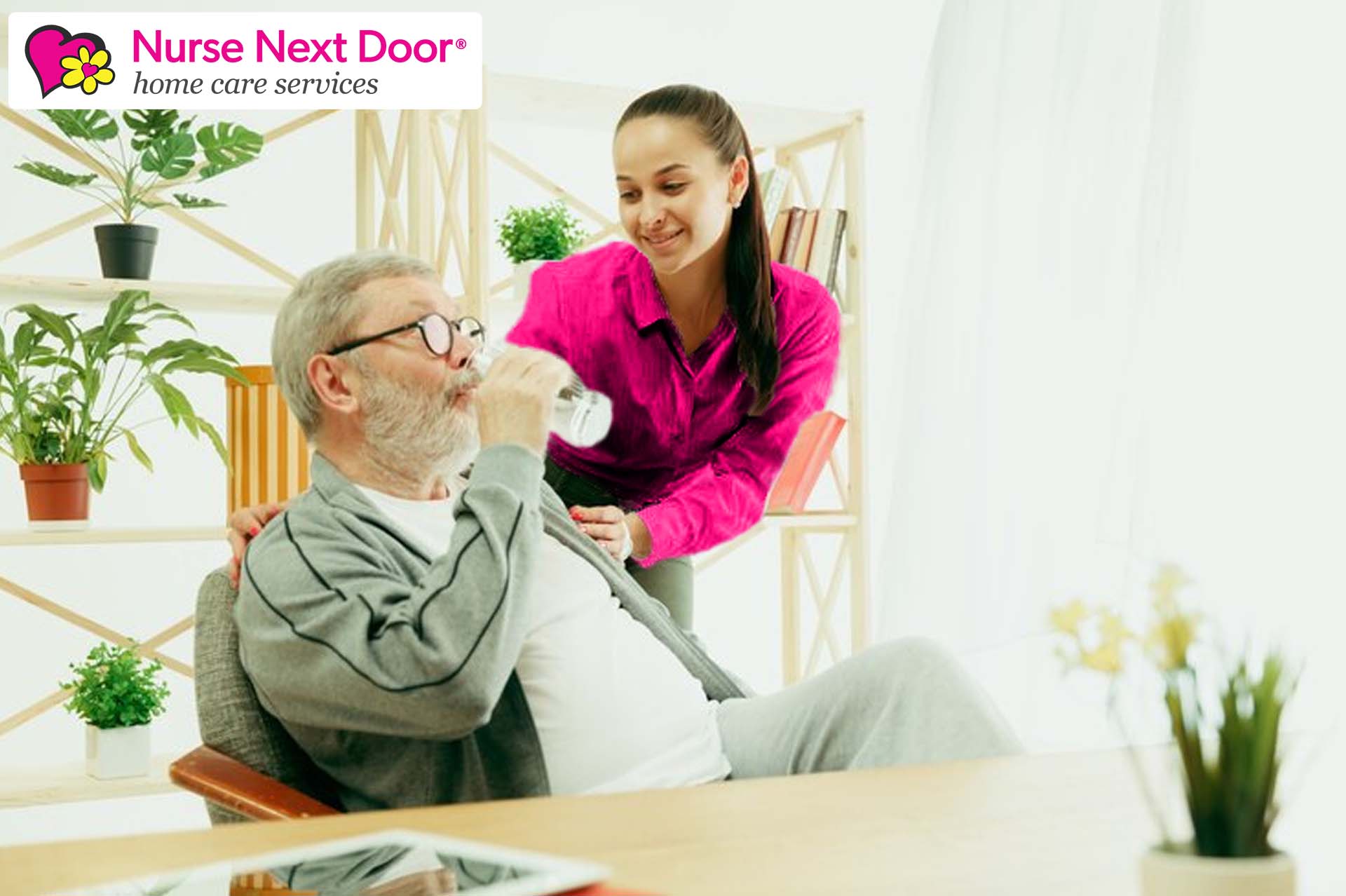
Taking responsibility for someone’s emotional and physical well-being is challenging and requires specific traits, skills, and attitudes. In-home caregivers play a central role in the lives of people needing assistance. Caregiving might be necessary for individuals recovering from injuries or surgeries, coping with aging, requiring help to carry out routine tasks, or needing emotional support.
In-home caregivers bring comfort, security, and reassurance to clients and their families. Their presence ensures that the clients enjoy a good quality of life at home despite their old age, illness, and injuries. By 2030, there will be 80 million Americans over 65. As 77% of seniors prefer to age at home, in-home caregiving will become increasingly important and in demand.
Are you looking for a reliable caregiver in Northern Virginia?
What Difference Do Caregivers Make?
Caregivers contribute significantly to the well-being of seniors and their communities. They also share the burden of healthcare systems by providing care in the comfort of the client’s home. In addition, caregivers provide respite and comfort to families, allowing them to enjoy some time off from their caregiving duties, knowing their loved ones are in capable hands.
In-Home Caregivers Provide These Services:
- Support for activities of daily living (ADLs) like cooking, light housekeeping, and grocery shopping
- Assist clients with hygiene and routine activities such as bathing, dressing, and grooming
- Remind seniors to take medicines on time and make sure they do so correctly
- Monitor and record their client’s health and collaborate with their healthcare consultants
- Play games that stimulate the mind
- Help avoid loneliness, making them less susceptible to depression
- Allow family caregivers to take breaks to ensure their well-being
- Skilled caregivers like registered nurses can help patients recover at home with services such as orthopedic care, wound care, cardiac care, IV infusions, Alzheimer’s and dementia care, and catheter and dialysis care
Do you want to explore skilled and non-skilled home care services?
Key Qualities of a Good In-home Caregiver
A good caregiver is always willing to provide dedicated services to ensure that the person in their care can live their life to the fullest. They dedicate their time and energy to helping their clients deal with challenges and difficult times. A good caregiver has several key qualities:
Qualifications & Skills
A good caregiver should be someone qualified to do the job. First of all, the caregiver you hire should be licensed to practice in the areas where you live. Basic certifications like first aid and CPR are essential for handling emergencies. In-home caregivers looking after dementia and Alzheimer’s patients should have relevant experience and practical knowledge. Some patients, such as those require IV infusions or are undergoing dialysis, would need assistance from a registered nurse.
Empathy & Compassion
Caregiving requires patience, humanity, and empathy. Empathy allows us to understand the feelings of another person. Sometimes, caregivers have to deal with clients who aren’t totally in control of themselves. Empathy enables caregivers to create a deeper and more meaningful connection with their clients, thus better understanding their needs. Good caregivers always try to see things from their clients’ perspectives and respond to their needs with kindness and consideration.
Reliability, Punctuality, & Trustworthiness
Great work demands unwavering discipline. That is why good caregivers are reliable, punctual, and trustworthy. These attributes allow consistency, which ensures and improves clients’ physical and emotional well-being. By ensuring reliability and punctuality, caregivers can increase client satisfaction and build a stronger relationship with them.
Communication Skills and Cultural Sensitivity
Good communication skills lead to a better understanding of the client’s needs and preferences. The best caregivers have excellent listening skills, so they can provide better physical and emotional support. Good caregivers always try to use communication channels and languages that the clients can understand. They should also avoid using medical jargon and technical terminology to avoid confusion. Moreover, a caregiver should remain attentive to nonverbal cues and body language.
Cultural sensitivity is another quintessential quality of a great caregiver. Cultural practices and beliefs can affect health outcomes. Caregivers should understand and respect clients’ values, beliefs, and customs. This may include the client’s dietary choices and religious beliefs, rituals, and practices. By being mindful of these aspects, the caregiver builds a better rapport with the clients and improves their quality of life.
Physical and Mental Strength
Good caregiving requires physical and mental strength. In-Home Caregivers might also need to move the clients from one place to another. Physically fit caregivers can conduct such activities with greater ease. Similarly, good caregiving demands mental and emotional strength. Caregiving can result in burnout and stress. That’s why good caregivers are always mindful of their mental health.
Additional Qualities
Several other qualities define quality caregiving. Some of these qualities are briefly described below:
Patience is a great virtue. Everyone can benefit from it. Good caregivers have it in abundance. Patience allows caregivers to make better choices under pressure.
Problem-solving abilities: Caregivers can encounter unexpected and challenging situations. Quick thinking, resourcefulness, and experience allow them to find appropriate and efficient solutions to such problems.
Flexibility: Good caregivers are flexible and can remain calm under pressure. They adapt well to changing situations without compromising the quality of their services.
How Does Companionship Help Seniors Overcome Loneliness?
Nurse Next Door:
Nurse Next Door selects licensed in-home caregivers based on the qualities highlighted in this article. We check the credentials and background of all caregivers before hiring them. Nurse Next Door connects clients with the most suitable caregiver. We offer a complete range of in-home caregiving services in Northern Virginia to make sure all your needs are met. Contact us today to experience the peace of mind that comes with trustworthy, reliable, and thoroughly professional caregiving.
Are you ready to uplift your loved one’s life with personalized home care?
Conclusion
Caregiving requires the right skills, empathy, and complete dedication. A great caregiver is compassionate, culturally sensitive, physically and mentally strong, patient, knowledgeable, experienced, flexible, and resourceful. These attributes ensure the physical and emotional well-being of the clients and build a strong bond between them. At Nurse Next Door, we offer personalized caregiving services, ensuring all our clients enjoy comfort, dignity, and independence. Contact us today to discover the difference professional and compassionate caregiving makes.



